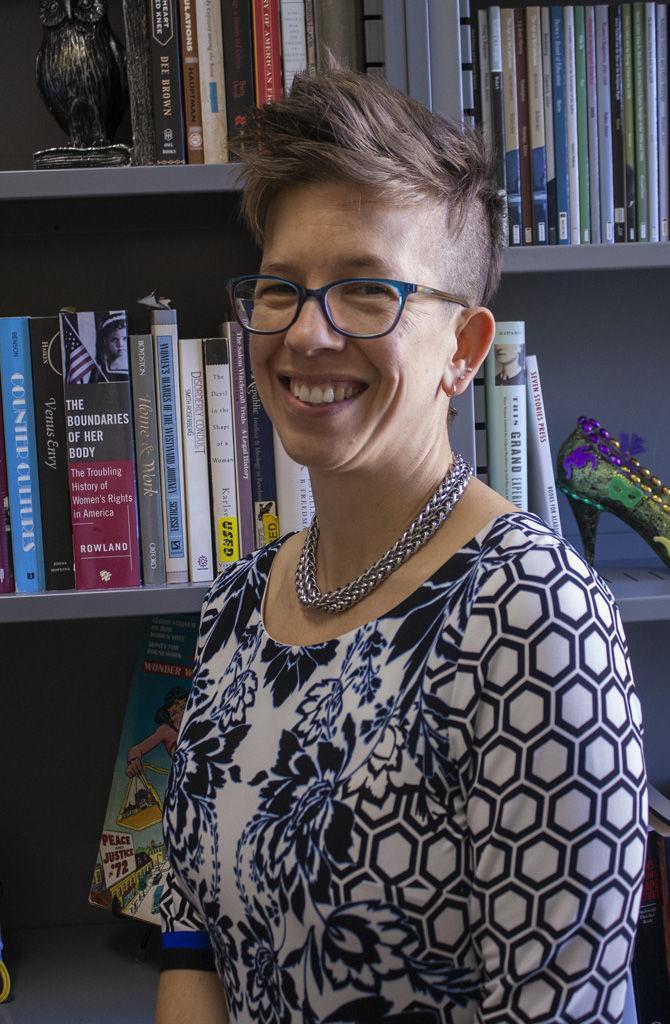American history students can expect to learn about presidents, wars and the constitution, but not all will be immersed in the historical struggles of women, minorities and members of the LGBTQ community.
Catherine Jacquet teaches HIST 2057 at the University and, in addition to covering the basics of American history from 1865 onward, she emphasizes topics that some teachers and textbooks abandon.
Jacquet is a professor of history and women’s and gender studies and received her Ph.D. in history from the University of Illinois at Chicago. Her history lectures at LSU dive into the lives of the oppressed.
“I want to look at those histories that are less well-known and tend to not be told as often,” Jacquet said.
For each exam, Jacquet creates a section called “Resistors and Dissenters,” in which students are required to write an in-depth analysis on the historical significance of one of two designated individuals or groups who overcame considerable hardships. Some resistors and dissenters in her exams last semester were Sitting Bull, Rosa Parks, Alice Paul and Fred Korematsu. Jacquet taught her students more than just who they were — she explained how they altered history by refusing to remain the victims of an intolerant society.
“These are stories that the students can really grab onto, and it makes history interesting,” Jacquet said.
Jacquet said the resistors and dissenters were people who fought to change their own lives. She wants her students to know that they also have the ability to organize and respond to current injustices.
Her goals are for her students to think like historians, use evidence backed by credible sources and apply their knowledge of history to understand facets of their lives.
“I want [students] to be able to make more sense of today using the history that I present to them. I want students to be educated and informed citizens,” Jacquet said.
Her powerful teaching style captivates her students and enriches their understanding of America’s tumultuous past.
Psychology junior Amber Hornsby took Jacquet’s class last semester and was surprised by not only what was taught, but also the way it was taught. She said it was refreshing to have a professor like Jacquet who encouraged class participation and actually taught her students things they may not have previously known.
The class forced Hornsby out of her comfort zone. She said the exams, which consisted primarily of essays and other written responses, pushed her to become a better writer.
“When I signed up for her class, I was worried it would be my least favorite class,” Hornsby said. “It ended up being my favorite class last semester.”
Hornsby enjoyed Jacquet’s history class so much that she has enrolled in a women and gender studies class taught by Jacquet this semester.
Emily Wells, Jacquet’s teaching assistant for the past two semesters, learned new material from Jacquet’s lectures. Jacquet helped expand Wells’ knowledge on subjects that are not always covered in undergraduate and high school history classes.
Jacquet said a history class she took as a sophomore in high school sparked her interest in history. She did not make the decision to pursue history until later in her undergraduate studies. It was during this time that she came out as gay and took women’s history and LGBTQ studies courses. The collision of these occurrences fueled Jacquet’s hunger to learn more about history, particularly gay and women’s history.
History lectures emphasize minorities, LGBTQ community
January 8, 2019
Dr. Catherine Jacquet sits in her office on the second floor of Himes Hall, on Tuesday, Jan. 8, 2019.
More to Discover









